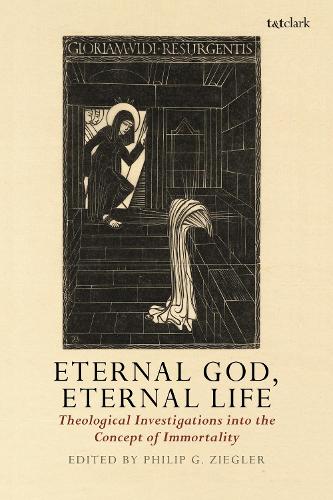
Eternal God, Eternal Life: Theological Investigations into the Concept of Immortality
(Paperback)
Available Formats
Publishing Details
Eternal God, Eternal Life: Theological Investigations into the Concept of Immortality
By (Author) Professor Philip G. Ziegler
Bloomsbury Publishing PLC
T.& T.Clark Ltd
20th September 2018
United Kingdom
Classifications
Tertiary Education
Non Fiction
Christianity
236.22
Physical Properties
Paperback
224
Width 156mm, Height 234mm
331g
Description
How ought Christian faith and theology understand the concept of human immortality today And what, if anything, might be distinctively Christian about such a concept The contributors to this volume explore how our thinking about the prospect of human immortality is decisively determined by what we receive of the limitless life of the triune God of the gospel, and how our understanding of immortality is made concrete by the Christian hope in 'the resurrection of the body and the life everlasting'. Debates about how best to understand the eternal life of God are directly significant to how we can imagine the promise of eternal life. While immortality is generally conceived to be a future qualification of human reality, theological approaches to the question of personal immortality must investigate the difference that the hope and promise of such eternal life makes in the living of present-day spiritual life as well as in our common moral and political existence. To understand immortality as an eschatological gift of God requires that we take account of it as a formative factor at the foundations of the Christian life.
Reviews
The contributions in this book ... offer robust reflections on a theme that has received little attention in recent years ... They represent a valuable and much-needed resource. * Theology *
Theologians in recent times have avoided giving an account of immortality so thank goodness we now have this book. In these fine essays we learn to see why immortality must be Christologically disciplined if we are to avoid needless speculations. Hopefully this book will be widely read and studied. * Stanley Hauerwas, Gilbert T. Rowe Professor Emeritus of Divinity and Law, Duke University, USA *
Immortality is, properly speaking, a perfection of God alone. Yet immortality is also 'brought to life' for creatures through the gospel of God's saving action. What should theology say about the nature of God's own eternal life, and about eternal life as God's gift to creatures What might it mean for human existence to be defined - here and now - by the Christian hope of fellowship with God beyond our present mortal bounds, and by the prospect of God's ultimate transformation of all things temporal and physical These essays offer stimulating contributions to such questions. The work of highly perceptive thinkers, they provide an orderly set of studies on some of the essential ways in which eschatology must be shaped by the doctrine of God; the authors also demonstrate how the relationship between these areas of theology ought to be profoundly determinative of Christian ethics and mission. * Ivor Davidson, University of Aberdeen, UK *
Author Bio
Philip G. Ziegler is Professor of Theology at the University of Aberdeen, UK. Born and educated in Canada, he is a graduate of several of the constituent Colleges of the Toronto School of Theology. He has previously held posts at Princeton University, USA and the Atlantic School of Theology, Canada.
